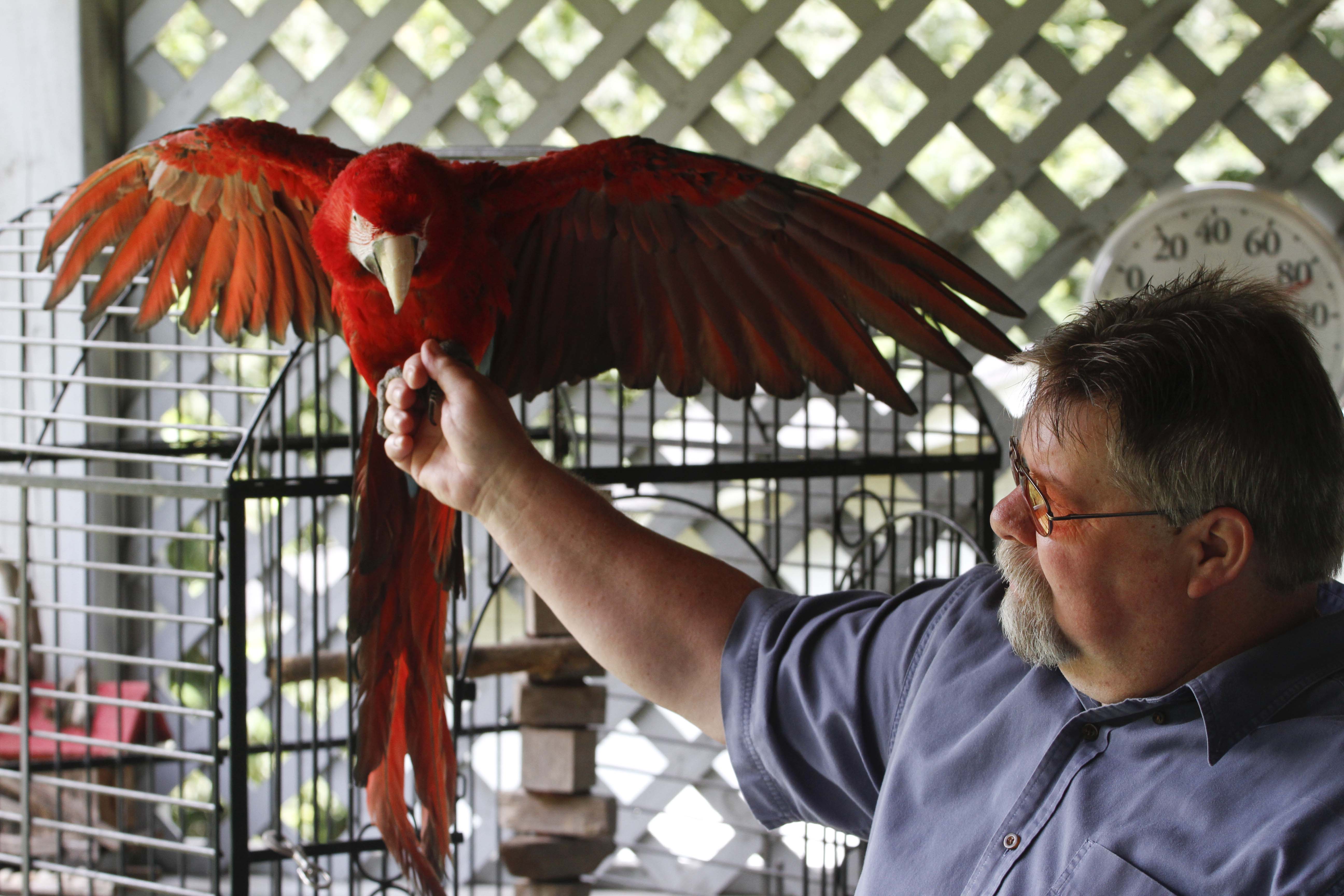Nation's exotic bird breeders dwindle as East Ridge fair showcases birds
Saturday, August 24, 2013
Cynthia Gill's bird barn is hallowed ground.
Strangers aren't allowed inside, and she only visits to feed and check on her 97 birds when she absolutely needs to.
Because breeding birds is tricky business. If the weather is stormy, or there's construction nearby or strangers are constantly trooping through, most birds won't make babies.
"They only produce when they feel comfortable," Gill said. She's been breeding all sorts of exotic birds since 1985, and today she will take 29 birds from her Rossville home to the Exotic Bird Fair in East Ridge, where around 800 people are expected to browse through birds and supplies from 25 vendors during the two-day event.
"I started out with a pair of lovebirds," Gill said. "Then I found they came in 30 different colors, and I had to have one of each."
Now she and her husband, Ray Gill, house double-yellow-headed Amazon parrots, macaws, parakeets, cockatiels and lovebirds. She's one of a dwindling number of bird breeders in the United States, as the economy and new regulations make it tough for breeders to turn a profit.
Jamie Whittaker, American Federation of Aviculture first vice president, estimate there are only a couple hundred exotic bird breeders with more than 50 pairs of birds left in the country. Including smaller, more amateur breeders, there may be a few thousand, she said. The federation doesn't track the number of breeders, in part because the term is hard to define, but she's witnessed the decline firsthand in her bird store.
"Fifteen years ago I had people calling me every day of the week wanting me to buy their babies," she said. "Today I'm in a positon where I'm constantly looking for babies to buy because they just aren't out there anymore."
The first generation of serious breeders, who really flourished in the 1970s, are dying or retiring, and not many young people are ready to jump into an operation where making money is iffy, said Rhonda Pope, owner and self-described slave laborer at Pope Farm Aviary in Buchanan, Ga. She has 52 birds and has been in the business for 10 years.
"We've got probably twice as many older folks getting out as we've got anybody coming in," Pope said. "The economy has hit the bird business exceptionally hard. People just don't have money for nonessentials, and birds can be costly."
But bird fairs such as the one in East Ridge draw from throughout the region and are an important chance for breeders to connect, network and sell cages, birds and supplies. Prices ranging from as low as $8 to as high as $1,200 per bird, said Birds and More owner and event organizer Don Price.
"At bird shows, you pay about 60 percent of what you would at a pet store," he said. "The pet stores have to put a large markup on theirs because they have to pay rent every day -- we just have to pay rent one day."
Gill expects she'll sell about 20 of the 29 birds she brings to the fair. Some birds she just wants to show off, not sell. She loves to educate kids and familes at the fair about the birds, pulling back feathers to show their ear holes or pointing out that new feathers grow in a straw.
And at the end of the day, it's not about money, it's about a love of birds, said Pope.
"If you're in this for the money, you're in the wrong business," she said. "If you don't love birds -- if you don't get just tickled with something so off-the-wall sitting in your lap and cuddling, or talking crazy or watching cartoons -- I've got a scarlet macaw that rides in a stroller. You kind of have to be a little bit crazy to do this."

